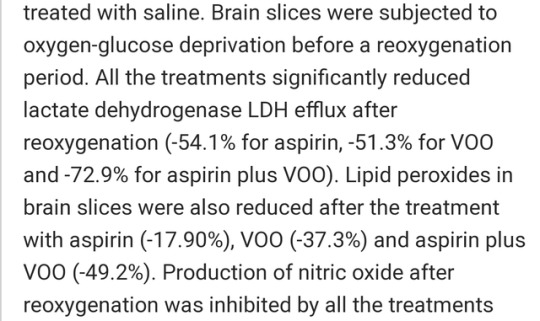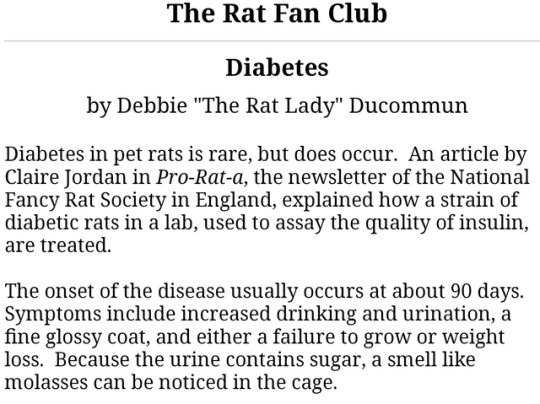#...i also suspect i've become something of a baby about illness symptoms
Text
Me yesterday night: Huh! I feel a little tired after my COVID shot, but not that bad. Maybe the hangover will be a little easier to deal with this year?
Me, emerging from beneath my weighted blanket this morning:

#body horror#horror#get your booster shot kids!#it's better to deal with two days of flulike symptoms than getting hospitalized or having long covid for the rest of your life!#but also make sure you schedule it for a friday so you can spend the weekend recovering!#if you've got a job that lets you take sick days then take 'em!!!#...i also suspect i've become something of a baby about illness symptoms#given that i haven't actually gotten sick since i started masking up during the pandemic lmao#all the more reason to mask up during cold/flu season! stop the spread of annoying head colds!
7 notes
·
View notes
Text
Virgin Olive Oil and Diabetes + common health problems
While doing some unrelated research on the effects of Salicylic acid on Rats, (used in things like acne treatments as well as veterinary ear cleanser,) I stumbled upon this interesting article about the effects of Virgin Olive Oil (VOO) on rats with diabetes.


Not only does it help the aspirin work better, it seems to have a similar effect to aspirin when used alone. I continued my research on diabetes in rats to reach this article so you know what to look for, but also not to worry too much as it is uncommon. (Out of my 15 years of rat experience, I've only witnessed one rat professionally diagnosed with diabetes, but it is important to understand as many of the health risks to your pet as possible so you know what to do in case you do encounter an odd behavior that might be an early warning of health problems.)

Some more common health problems to look out for are;
Head tilt ear infection
(if you notice an odd/bad/sweet smell near your rat's head on either one or both sides, immediately treat with ear cleanser, (or olive oil if you can not obtain pet ear cleaners, but I strongly recommend trying to find the cleaner regardless as it can be used to clean dirty/stained/oily rat tails and claws,) but only use sparingly as the Salicylic acid can build up in their system and cause toxicity as it takes a long time to be expelled through the rats urine. Take the rat to a vet if you can afford to because a head tilt ear infection greatly lowers mobility and quality of life because once their head is tilted, the rat does not usually recover it's balance, even if the infection is eliminated, due to the destruction of the inner ear mechanism.)
Mammary gland tumors
Extremely common in female rats, (30-90% of females, 0.5-16% in males) (the reason I switched back to male rats tbh,) and starts as a small lump along the underside of the rat that grows pretty quickly. The tumor can grow until it is almost as large as the rat itself before the rat's body can no longer sustain both the rat and the tumor and the rats immune system fails, leading to multiple health failures until she passes. The only way to prevent the death is to get the tumor removed, as most of these tumors are benign. (If the tumor has a blue colour, it is almost always malignant/cancerous.)
Pituitary tumor
20% of female rats and 7% of males. (Spaying can reduce this to 4%) This tumor is under the rats brain and causes neurological problems. The symptoms commonly progresses slowly, (but can progress rapidly,) leading to compromised mobility that is most easily noticeable in their arms and hands as they struggle to hold food, and may start to have porphyrin caked onto their wrists. The rat may start to act confused, hyperactive, and show other odd behavior due to the tumor causing pressure on the rats brain.
Abscesses and cysts
I've had a few rats, (including Reggie, actually,) that have gotten abscesses or cysts. Abssesses happen when a scratch or bite or other irritant causes puss to accumulate in the the skin, causing a bump. In the case of cysts, it is a buld up of rat oil and dead skin in their oil glands instead of puss and it doesn't usually grow as fast or get as big as an abscess. I've seen an abscess get to the size of a marble, but they range in size. Abssesses and cysts can resolve themselves on their own, opening and draining with the rat cleaning the wound himself and the rat may not even scar. However, if an abscess is not healing or if the puss is too thick for the rat to deal with themselves you can assist them with draining and cleaning the abscess as well as trimming the fur around the effected area. In the case of cysts, you can squeeze out the build up and clean the wound. You may have to drain the cyst multiple times before it heals completely. Reggie had a cyst the size of a grain of rice around his shoulder/collarbone that he couldn't deal with himself, and even though it was not bothering him at the time, he had had it for a while with out change so I squeezed out the build up for him and treated it with polysporin. The cyst did not return. (Males are more likely to get cysts because they are extra oily. Reggie is at a disadvantage for this as well, as he has no undercoat to move the oil through his fur so I wouldn't be surprised if I have to repeat this experience multiple times.)
Rats are also very likely to contract Respiratory illnesses from the bacteria mycoplasma, or a secondary bacterium or virus. The only way to combat it is meditation.
Rarely, rats can have allergies, but if your rat is sneezing a lot or gets the 'hiccups'(actually a type of sneeze,) often times they have respiratory illness. Almost all 'fancy rats' have some level of mycoplasma, even if they are asymptomatic and may only start to show symptoms of an infection once their immune system is compromised.
Simple wounds and sprains
Simple wounds like scratches and bites that are not life threatening can be treated with polysporin. If the polysporin does not stop an infection from starting, the wound can be cleaned with hydrogen peroxide, as long as you clean all of it up after because it is toxic if ingested. Sprained ankles can sometimes occur, (I've delt with 2 rats with sprains,) and as extreme as the swelling may look, if it's foot is not broken it will heal, surprisingly, with in a few days. (If you do suspect a break, it is better safe than sorry to go to the vet if you can afford it.)
Mental health
Rats can have anxiety or become depressed, with similar symptoms humans. Rats can become depressed if left alone for too long or are in an inappropriate environment or develop anxiety if not handled properly or if the rat has experienced trauma. Just like people though, some rats are just more anxious than others. (Reggie for example has anxiety but he has been handled since he was a baby and spoiled.)
This became a longer post than I expected, however knowing as much as possible about your pets health risks is important to provide care for your pets in the case of an illness, wound or emergency.
We learn through our experiences and mistakes, so if I am wrong about something, or if you have advice you feel I haven't covered, feel free to reblog/comment.
10 notes
·
View notes